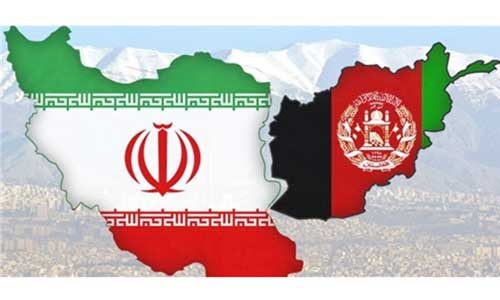On Oct. 12, Abdullah, chief executive of Afghanistan, met with Iran’s deputy foreign minister, Samdi, in Tajikistan. The two countries said that they will comprehensively implement the “Iran-Afghanistan Comprehensive Cooperation Agreement” to strengthen cooperation in security, water and economic sectors. Then, (September), Abdullah met with his counterpart, Iran’s president Hassan Rouhani, in New York, they jointly highlighted the importance of relations between the two countries, as well as the strengthening of bilateral cooperation that would make the gains of the two countries. Iran-Afghanistan’s strengthening of bilateral cooperation is not only because of geopolitical proximity, profound historical and cultural factors and strategic mutual needs, but also the result of the common role of the international situation.
First, geographical location. Iran-Afghanistan’s strengthening of bilateral cooperation will make the present geographical location better. Afghanistan is located in the junction of South Asia, Western Asia and Central Asia, and is the place for the world’s main powers. Iran is located in the Middle East with a superior geographical location, North, it is adjacent to Armenia, Azerbaijan, Turkmenistan, Turkey and Iraq on the west, Pakistan and Afghanistan in the east, and to look at the sea, there are Kazakhstan and Russia, on the south, it is the Gulf and the Gulf of Oman. If Iran and Afghanistan deepen their cooperation, they will be in the heart of Eurasia.
Second, the historical and cultural factors. Iran has a profound historical connection with Afghanistan. Afghanistan and Iran have a shared culture of Persian, common language and cultural constructed the spiritual links, also good political relations with each other, and there are no serious contradictions similar to those of other neighbors. Thereby, thee can create a community awareness that provides the cultural platform for cooperation.
Last but not least, the strategic demand. Iran has important strategic interests in Afghanistan. On the one hand, Iran sees Afghanistan as its strategic fulcrum to the development of Central Asia; therefore, Iran has strengthened its cooperation with the Central Asia region by applying for the SCO, deepening the cooperating with the Eurasian Economic Union, promoting the development of the Caspian oil and gas; On the other hand, Iran hopes for a strong and stable Afghanistan, in order to achieve its goal. Iran has been providing substantial assistance to the Afghan national reconstruction, and strengthening the economic ties between Iran and Afghanistan. At the same time, Iranian factors are fully reflected in the Afghan political process, economic reconstruction, the fight against drug trafficking and the placement of refugees and opposition to the United States in Afghanistan. Peace and stability in Afghanistan will be inseparable from Iran’s participation and support.
In addition, the role of external forces is further deepening bilateral cooperation. The USA-led International Security Assistance Force (ISAF) withdrew from Afghanistan by the end of 2014 and transferred all Afghan security responsibilities to the Afghan security forces. The continuing tensions between Iran and USA, and the special relationship between USA and Afghanistan, led Iran to a dilemma. Iran has always taken Afghanistan as an important starting point for its foreign policy. But the ambiguity of Afghan policy of Trump’s government has also prompted Afghanistan to seek a broader external cooperation target, where Iran will play an important role in the evolution of the situation in Afghanistan.
Although the relations between Iran and Afghanistan have been strengthened, some practical problems remain in place impacting the process of relations between the two countries. The two countries have not only formed a political will to cooperate, but also agreed on practical issues, such as the acceptance of hundreds of thousands of Afghan refugees by Iran and the provision of relevant funding, education support and help to achieve labour-dispatch. Of course, we should also see that some factors still hinder the development of relations between the two countries, such as the role of Iran in Afghanistan, which is somewhat limited by the attitude of government officials and people. There are serious differences between the two countries in the development and utilization of water resources; The Afghan doubt that it is Iran’s support for “agent’s war” in Afghanistan, while Iran warning Afghans not to import terrorism to Iran.
In conclusion, the future development of relations between Iran and Afghanistan is deeply influenced by the multi-level factors. In view of the fact that the two countries have gradually internalized the concept of cooperation into the bilateral relations, and a number of cooperation agreements have been reached successively, and other factors, such as geographical proximity, has laid the foundation for promoting the healthy development of relations between the two countries.
Home » Opinion » Iran-Afghanistan Deepen Bilateral Cooperation
Iran-Afghanistan Deepen Bilateral Cooperation
| Li Boyi,Huang Dekai&Ren Mingzhe

